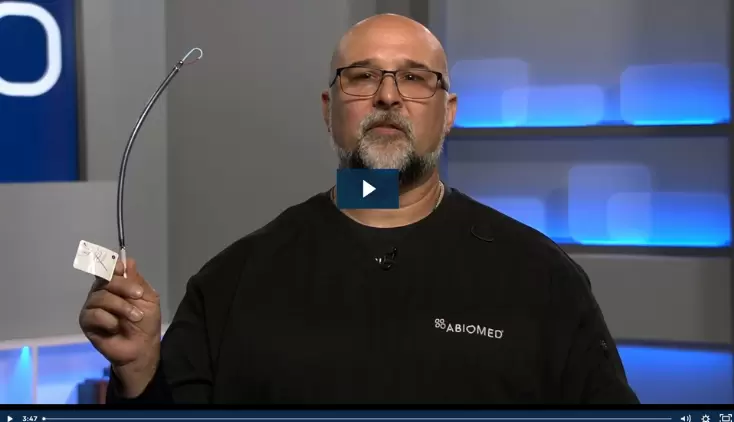Right Heart Failure, Surgical Applications
Tampa General Heart Team: Early Experience with Impella RP Flex™ with SmartAssist®
“When you have a device that is much more accessible and easy to use, I think that the threshold is going to come down and people will make the right choice, right device, right time”states Hiram Bazerra, MD, in reference to his early experience with the Impella RP Flex™. Dr. Bezerra is an interventional cardiologist and member of the heart team at Tampa General Hospital. He explains that delivering the RP Flex via internal jugular (IJ) access is very easy. “One feature that I really like is the ability to reposition without a guidewire.”
Swaroop Bommareddi, MD, a cardiac surgeon on the Tampa General heart team, highlights the stability of the platform. “The device does not move once you get it to the proper position… the device is stable, so when our patients are ambulating, it doesn’t move.”
Debbie Rinde-Hoffman, MD, a heart failure cardiologist at Tampa General, states that IJ placement and the ability to mobilize patients is “a huge benefit to the patients that can have both left- and right-sided support and be able to ambulate.” She also emphasizes the benefits of the RP Flex™ being smaller than the Impella RP® and its ability to maintain a stable position. “We’ve used it in lots of different types of patients and it’s just been a great addition to the armamentarium.”
Ioana Dumitru, MD, another heart failure cardiologist at Tampa General, describes the variety of patients in which they’ve used RP Flex, including a patient with predominantly right ventricular graft dysfunction post-transplant who was heading toward needing another transplant. “It truly has been a lifesaver for the patient, the graft and the overall outcome.”
Dr. Bezerra highlights the need to expand education on recognizing and treating right ventricular dysfunction. Dr. Rinde-Hoffman states that education in the community will improve earlier usage of right-side support such as RP Flex. “I think this device definitely helps us prevent end-organ dysfunction and earlier,” Dr. Bommareddi adds.
Dr. Dumitru emphasizes that the RP Flex provides flexibility when deescalating patients from ECMO to biventricular support, enabling patients to ambulate with longer duration of support and fewer complications.
The physicians conclude their discussion describing the weaning process for patients on RP Flex support.
IMP-4652


